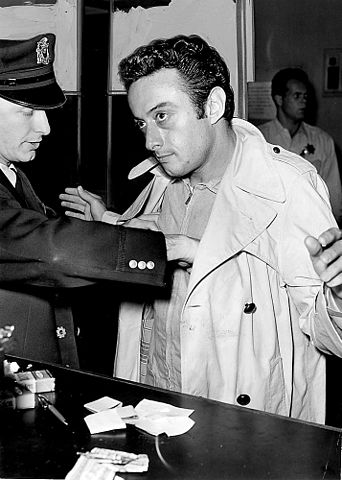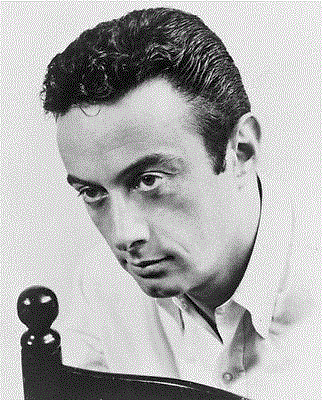This week (and somewhat late), Isaac and Demetria talk about the trials (literally) and tribulations of the great American comedian Lenny Bruce, whose boundary-pushing comedy landed him in hot water on charges of obscenity around the United States.
(Our apologies for the low energy and late release–we’re both pretty sick.)
Featured Image: A portrait of Lenny Bruce (Image source)

A policeman frisks Bruce after one of his many arrests. (Image source)
Bruce on the Steve Allen Show in 1959, musing on the nature of offensiveness.
One of Bruce’s infamous sets, recorded live in 1962. Please be aware that some of the bits aren’t just profane in language, but will be pretty shocking to modern audiences in their discussion of race and sexuality.
Bob Dylan’s posthumous tribute to Lenny Bruce, describing him as “more of an outlaw than you ever were.”
More information on US obscenity laws
- A Citizen’s Guide to US Federal Law on Obscenity: An overview of modern federal laws by the US Department of Justice
- Federal Communications Commission v. Pacifica Foundation: An overview of the 1978 case that allowed the government to regulate broadcast material containing indecent speech. The case involved George Carlin’s “Filthy Words” monologue, which was broadcast over the radio in 1973.
- The First Amendment Encyclopedia, Obscenity and Pornography category: An excellent collection of digital material on notable obscenity cases by the Free Speech Center at MTSU.
- ‘Boiled Angels: The Trial of Mike Diana’: Film Review: An upcoming documentary about a case from the 1990s involving the conviction of a comic artist I mentioned during the episode.
- Information from the ACLU on obscenity laws: The 1997 ruling in Reno v. American Civil Liberties Union is the reason that speech online is regulated by the permissive standards applied to books and magazines–which is why I can legally link to all this Lenny Bruce content. Broadcast television and radio have different, more limited protections.
